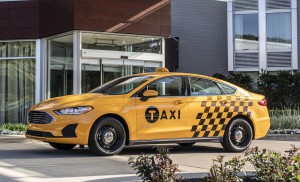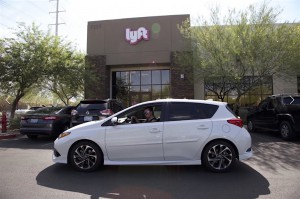
New studies show that mass transit usage is likely to decline in the wake of the coronavirus pandemic.
In the “City that Never Sleeps,” the traditionally 24/7 New York subway system now will be shutting down each night for four hours so trains can be cleaned and disinfected to help stem the spread of the coronavirus.
Ridership on the New York subways has collapsed since the pandemic swept through the Big Apple, a situation repeated in cities around the world. At the same time, usage of ride-sharing services like Uber and Lyft has tumbled sharply, as well. That’s not entirely unexpected considering the majority of Americans have been working from home for much of the past two months in an effort to minimize the impact of the pandemic.
The question is whether things will return to normal after shelter-in-place orders are lifted. If anything, there are signs that a shift away from mass transit and other transportation alternatives will become the new normal, two studies suggesting that an emphasis on hygiene will push many commuters back into personal transportation.
(Former GM President Ammann says owning cars is outdated.)
“More than 20% of respondents who regularly used buses, subways or trains now said they no longer would, and another 28% said they will likely use public transportation less often,” noted a summary of a study by IBM looking at how COVID-19, the disease caused by the coronavirus will alter U.S. consumer behavior.

New studies show that concerns about hygiene, prompted the coronavirus pandemic, are likely going to cut use of taxis.
The study also found 17% of people surveyed plan to use their personal vehicles more going forward, fully one in four saying their cars will become their exclusive form of transportation.
Those numbers were echoed by a separate Capgemini study which suggests “there’s a potentially seismic shift” underway, according to Daniel Davenport, “auto expert” with Capgemini’s North American auto sector.
“We’re going to see individual vehicle usage rise as people more concerned with hygiene choose personal transportation,” Davenport told the Detroit Free Press. “There’s also more interest in car ownership from customers under 35 years old.”
What’s particularly significant about the Capgemini study is that it is based on surveys taken by 11,000 potential buyers in 11 countries accounting for 62% of global vehicle sales.
Globally, it found 35% of potential buyers are considering the purchase of a car this year, with the numbers especially high in both China and Italy, two of the countries hardest hit by the coronavirus pandemic. The figure for the U.S. was 34 percent.
(Science group calls for ride-hailing companies to switch to EVs.)
The global pandemic is having a massive impact on daily life in the U.S. and much of the rest of the world, and it surprises few experts that the effects will be felt long after lockdowns end and businesses can resume operations. Transportation is an area directly in the crosshairs.

Even ride-hailing services, like Lyft, are likely to feel the sting of new concerns about the safety of mass-transit vehicles.
The new IBM study finds that a large share of the American workforce has come to appreciate the benefits of working from home,“ as more than 75% indicate they would like to continue to work remotely at least occasionally, while more than half – 54 percent – would like this to be their primary way of working.”
For those who will have to return to offices or factories, packing into crowded subways and buses may no longer be an acceptable solution. Reflecting the global nature of its study, the Capgemini report found fully 46% of those surveyed by said they will be less likely to use public transportation going forward.
Ride-hailing services didn’t fare much better. Asked to respond to the statement, “I will prefer to use fewer ride-hailing services (in the future) owing to health and safety concerns,” 43% of those surveyed by Capgemini agreed, while only 35% disagreed.
That could deliver a knockout blow to some of the leaders in that emerging sector. Both Lyft and Uber have been hemorrhaging cash in recent years and have seen demand crumble during the national lockdown. Last week, Lyft laid off nearly 1,000 employees and Uber is soon expected to announce cuts of its own.
The shifts identified by these two studies could prove problematic to environmentalists and others hoping to see a move away from private vehicle ownership. But this may be the silver lining for the auto industry. During the last several years it has become conventional wisdom that car sales would start to decline over the coming decade as motorists shift to alternative transportation options.
(Hyundai, Uber partner on aerial taxis, show off full-scale model at CES.)
In the short-term, the pandemic is causing serious problems for the auto industry, April sales plunging to a level not seen since the Great Recession. A separate study by J.D. Power warns that U.S. demand could come in as low as 12.7 million vehicles this year, down from 17.1 million in 2019. But the numbers are expected to begin rebounding as we head towards 2021 – at least if there isn’t a second wave of the coronavirus. And, if the IBM and Capgemini surveys are on target, car sales could get a post-pandemic boost in the years ahead.
